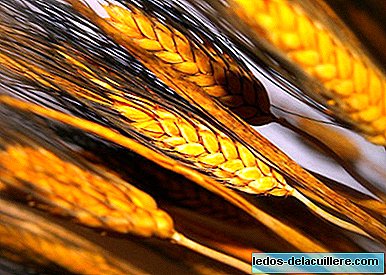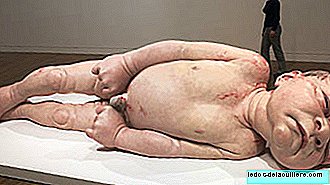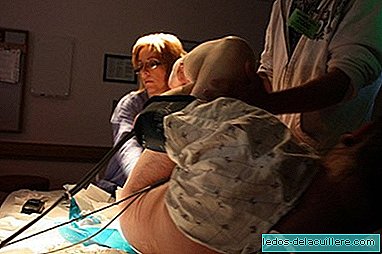
The good thing about the internet and social networks is that what you leave written is very difficult to disappear and so we can recover today, scientific studies that went unnoticed at the time.
So I learn from social networks that since 2012, the marketing of the probiotic strain has been authorized Bifidobacterium longum ES1, the celiac-friendly bacterium.
Celiac disease
Gluten is a set of proteins present in some cereals such as wheat, barley, rye and spelled, whose function, among other things, is to provide volume and consistency of bread dough and that is used as an additive in a multitude of food preparations, such as cold cuts and cold cuts.
This disease is a chronic disease of the small intestine, of genetic origin, in which an immune response against the gliadins, substances present in dietary gluten in individuals. This causes an inflammation of the intestinal villi, responsible for the absorption of nutrients causing them to not fulfill their function.
Today there is still no cure. The only thing that a person affected by this disease can do is a gluten-free diet and still we will find some side effects.
Intestinal flora
One of the side effects caused by this disease is the decompensation of the microorganisms present in our intestinal flora, responsible for digesting and converting many products that we ingest into usable substances by our body. In the celiac flora there is a greater proportion of Gram negative bacteria, causing some diseases and a low proportion of beneficial bacteria, such as Bifidobacterium.
The presence of these negative Gram causes that it diminishes the production of anti-inflammatory substances of the intestine. That is why celiacs are prone to bowel disorders.
A celiac who does not completely eliminate gluten from his diet can develop iron deficiency anemia, depression, infertility or osteoporosis. In children, the problem is aggravated, as there are usually alterations in growth.
Even so, gluten-free diets are usually poor in calcium, fiber, iron, magnesium, selenium, vitamin B and zinc.
The investigation of the probiotic Bifidobacterium longum ES1
In 2007 the group of Yolanda Sanz at Institute of Agrochemistry and Food Technology of the Higher Council for Scientific Research in Valencia isolated the strain Bifidobacterium longum ES1, from the feces of a three month old, healthy and breastfeeding child. This strain had the peculiarity of resisting the passage through the digestive tract, something very important for a probiotic to fulfill its function in the intestine. Another of the functions they discovered was that this microorganism was able to process gluten gliadins in a different way, generating by-products that did not cause inflammation of the small intestine.
In subsequent studies (2010) it was discovered the strain Bifidobacterium longum ES1 is able to hydrolyze some of the gluten peptides that generate the inflammatory response. In addition, it was found that it partially inhibited the growth of common pathogenic bacteria in the celiac gut, that is, it was able to compete with these causing the balance in the intestinal flora to recover.
A safe strain
After the tests with animals, in which its efficacy could be seen and that no case of toxicity or disease caused by the microorganism had been detected, it was passed to the trials with humans, adults first and later in children in the hospitals: Hospital Universitari Sant Joan de Reus and the Sant Joan de Déu Hospital in Barcelona. Concluding that the strain was safe for human use and that it had all the benefits that had been described in the laboratory.
Proceliac, the commercial product with Bifidobacterium longum ES1

As clinical trials progressed, during the first months of 2012, BIOPOLIS scientists developed the industrial production of the ES1 strain. This was a complex process that had to be optimized at the laboratory level, then at the pilot plant and finally at the industrial level. Scientists from Central Lechera Asturiana, who also participated in the CENIT SENIFOOD project, became interested in the strain and began to define, together with the BIOPOLIS scientists, what has been the first commercial product designed for the celiac community that incorporates the probiotic strain Bifidobacterium longum ES1.
This is how a probiotic is born, in this case Proceliac.
What exactly is the proceliac?
Proceliac is a skimmed milk powder, unfortunately the bacterial strain does not survive too long in a liquid environment, which contains the probiotic Bifidobacterium longum ES1, along with some vitamins and minerals that are usually scarce in diets for coeliacs.
Its presentation is in a container of 450 gr. and the daily dose is 30 gr. what it gives for about 14 days. Another remarkable thing is that by containing a living organism, should not be heated to more than 40 ° C, that is, we must take it mild because an excess of temperature would kill our friends and it is something we do not want. It also does not replace a gluten-free diet, and we must take it into account, the help that gives us is to "balance our flora" and reduce irritation, but gluten is still poison.
On the Asturiana Dairy Plant product page you can see all its composition, as well as its use and recommendations.
In the times that run from cuts in research, it is not bad to remember that this product is the result of investing in a line of Spanish research and as a Spanish company you will get benefits from that research. In this case, everything is at home.


)









